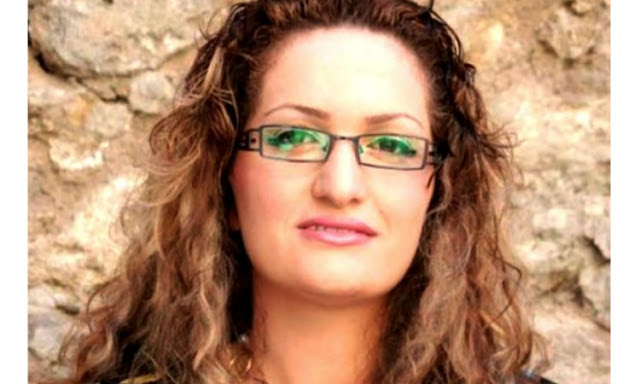 |
| Iglesia Católica Armenia en Teheran (wikipedia) |
Are there Christians in Iran? How is life for them?
Let's try to figure out how they live in a country where converting to Christianty can be a crime that means 10 years in prision.
Yes, there are Catholic temples in Iran; but they are surrounded by surveillance cameras to avoid Muslims to come in.
On the other hand, religious schools have limits on the kind of religious content they can deliver and teach to the kids.
These are some aspects shared by the Iranian journalist Sohrab Ahmari, who has his own path to the Catholic faith.
 |
| Sohrab Ahmari |
According to Ahmari, "Catholicism is mainly an ethnic phenomenom".
We can find Armenian and Assyrian Catholics in Iran, who has their own Churches, but they can not evangelize. In addition, Bibles are allowed only in their own language.
According to Ahmari, who worked for the American Wall Street Journal "The Iranian Constitution consecrates Shia Islam as the state religion and relegates certain other religious minorities to a protected, but second-class status."
This situation relegates Christians and Jews to disadvantege situatuation compared to Muslims.
Sohrab Ahmari converted himself to Catholicism after living in the United States for more than two decades; which means that his own conversion would have been almost impossible if he lived in Iran.
According to Ahmari "These people have a certain degree of limited rights, but they also have all sorts of social limitations."
Nevertheless, other small religious groups like Evangelical Christians can be considered as illegitimate.
Former Muslim have suffered worse sentences after Christian conversion according to the 2018 report of the United States Commission for International Religious Freedom (USCIRF).
The document warned that "many were sentenced to at least 10 years in prison for their religious activities."
 |
| Maryam Naghash Zargaran |
Maryam Naghash Zargaran, a Christian converted from Islam, was released from prison in August 2017, after serving more than four years to which she was sentenced. Mary Ann Glendon, former US ambassador to the Holy See, was among those who advocated her release.
In May 2017, four evangelical Christians were sentenced to 10 years in prison for their evangelizing work.
The US Department of State has designated Iran as a "country of particular concern" on religious freedom since 1999.
The Iranian government control internet behaviour in order to identify religious activists and activities.
According to the USCIRF, during a series of democratic protests in January 2018, the government blocked access to internet, including social networks.
While Christians have done much better in Iran than in neighboring Iraq, Ahmani believes it is important for Catholics to realize that these protests were different from other uprisings in the Middle East.
There is a tendency among some conservative Catholics to now see any uprising or any democratic fervor in a country as automatically bad, that is why they care about those communities.
They look at what happened with Iraq, what is happening with the Copts in Egypt and think ‘no more uprisings,’ ”said the Iranian journalist.
“The case in Iran is different because the regime itself enshrines a type of Islamic supremacy and suppresses minorities in several ways. People who are rising want religious freedom" said Ahmani.
Religious freedom and human rights were the center of Pope Francis' meeting with the president of Iran, Hassan Rouhani, in January 2016. Iran and the Holy See have had continuous diplomatic relations since 1954.
In the Vatican, Pope Francis and Rouhani also discussed the application of the Joint Comprehensive Action Plan (JCPOA), also known as the “Iranian nuclear agreement,” which had entered into force just 10 days before that meeting.
The president of the United States, Donald Trump, ended the JCPOA and reimposed the sanctions that had been lifted.
By the time and according to a White House statement, "JCPOA failed to deal with the threat of Iran's missile program and did not include a sufficiently strong mechanism for inspections and verification."
The human rights abuses of the Iranian regime and the repression against protesters were also condemned in the May 8 press release, announcing the end of the United States' participation in Iran's nuclear agreement.



No hay comentarios.:
Publicar un comentario